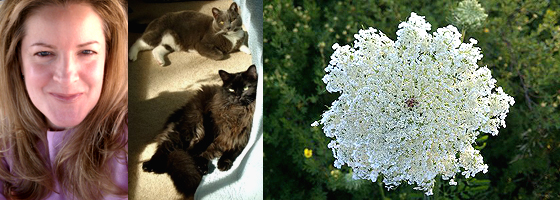
“The heart has its reasons which reason knows not.”
―Blaise Pascal
Good morning! I’m pleased to share one of our most popular articles at SoulfulLiving.com on the subject of “love and relationships” with you today, by the highly renowned, best-selling author of “Getting the Love You Want,” Harville Hendrix.
In his article, Harville offers us a very thorough and sometimes scientific analysis of romantic love. Fascinating! Enjoy ♥
by Harville Hendrix
I usually ask couples how they met when they come to me for marital therapy. Gayle and Paul were already separated and he had filed for divorce after fifteen years of marriage when they came for their first session. They had met in Germany shortly after Gayle had graduated from college. She had just arrived, eager to begin her first teaching job on the military base. Although he was very handsome, she wasn’t particularly attracted to him when an acquaintance introduced them. He didn’t seem to be her type: he was studious, quiet and reflective; she was outgoing, humorous, and sociable.
She was surprised when he telephoned to invite her to an American movie with German subtitles. She recalled that his German was almost fluent, and she was eager to practice her new skills with him. Following the movie they went to a pub for coffee, and spoke mostly in German. During the next few months they spent more and more time together to study their shared passion. No one seemed surprised when they announced wedding plans a year later.
In contrast, Mark and Rene met in a college history class. He noticed her the minute she walked in the class; she had a beauty and an air of confidence that turned heads. As she tells the story now, he was too shy to ask her out, so she asked him for their first date. Theirs was an immediate attraction and they began dating exclusively. Against the advice of their friends and families, they married four months later and are still happily married after twenty-six years and four children.
The Mystery of Romantic Attraction
During recent years, scientists from various disciplines have studied attraction and romantic love, and valuable insights have come from each research area. Some biologists claim there is a certain “bio-logic” to courtship behavior that ensures survival of the species. According to this theory, men are drawn to classically beautiful and healthy women who have physical indicators that they are in the peak of childbearing years.
On the other hand, women select mates for different biological reasons. Women instinctively choose mates with “alpha” qualities, the ability to dominate other males and bring home the lion’s share of the kill. Thus, an aging corporate executive is as attractive to women as a young and handsome, but less successful, male.
Social psychologists explore the “exchange” theory of mate selection. The basic idea behind this theory is that we select mates who are more or less our equals. We seek potential partners on the basis of history, similar backgrounds, financial status, physical appeal, social rank and personality traits.
A third idea, the “persona” theory, maintains that the way a potential suitor enhances our self-esteem is an important factor in mate selection. Each of us has a mask, or persona, that is the face we show to other people. The persona theory suggests that we select a mate who will enhance our self-image. There seems to be some validity to this theory; we have all experienced some pride and perhaps some embarrassment because of the way we believe others perceive our mates.
Although these three theories help explain some aspects of romantic love, we are still left with our questions. What accounts for the intensity of romantic love? And why do so many couples have complementary traits?
The more deeply we look at the phenomenon of romantic attraction, the more incomplete these theories appear to be. For examples, what accounts for the emotional devastation that frequently accompanies the breakup of a relationship?
The theories of attraction we’ve looked at so far suggest that a more appropriate response to a failed romance would be to plunge immediately into another round of mate selection.
There is another puzzling aspect of romantic attraction: we seem to have much more discriminating tastes than any of these theories would indicate. To test this idea, reflect on your own dating history. In your lifetime you have met thousands of people; as a conservative estimate, let’s suppose that several hundred of them were physically attractive enough or successful enough to catch your eye. When we narrow this field by applying the social-exchange theory, we might come up with fifty or a hundred people out of this select group who would have a combined “point value” equal to or greater than yours. Yet most people have been deeply attracted to only a few individuals.
Furthermore, those few individuals that people are attracted to tend to resemble one another quite closely. Consider the personality traits of the people that you have seriously considered as mates. If you were to make a list of their predominant personality traits, you would discover a lot of similarities, including, surprisingly, their negative traits…
Continue Reading “Getting the Love You Want”
Copyright Harville Hendrix. All Rights Reserved.
I’d love to hear your thoughts and comments on Harville’s article! Please scroll down and leave your comments below.
And, if you haven’t already done so, be sure to pick up your special package of inspirational goodness exclusively for our Daily Soul Retreat Newsletter Subscribers — a “Soul Retreat Gift Pack” filled with over $300 worth of Ecourses, Ebooks, Audio Workshops and Meditations, donated by our awesome SoulfulLiving.com authors. If you aren’t already subscribed, click here for all the details. If you are already subscribed, watch your Daily Soul Retreats for all the details.
Wishing you a day filled with much love!
Soulfully,
Valerie











